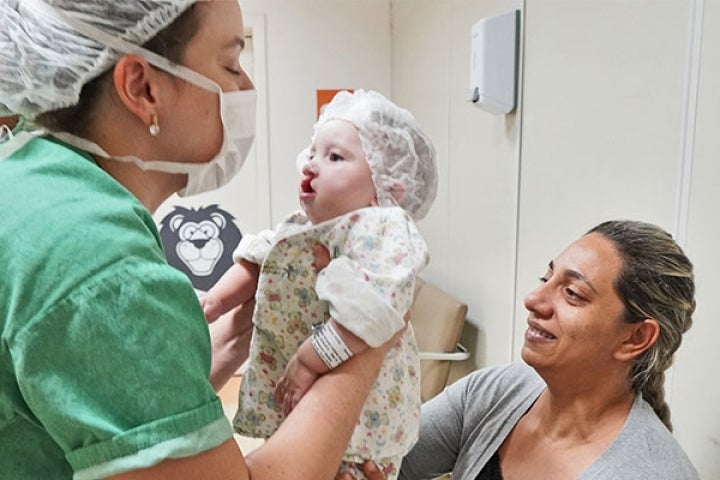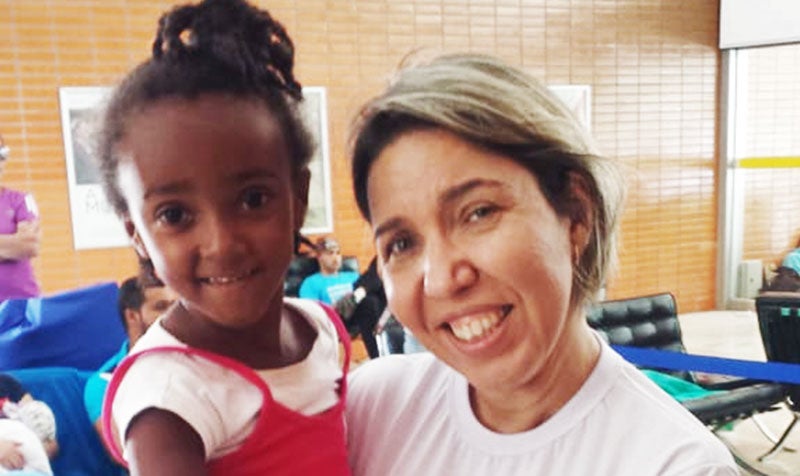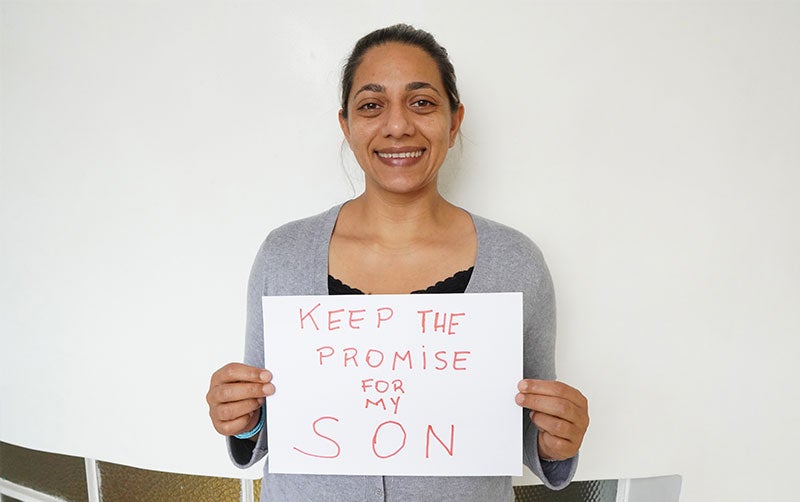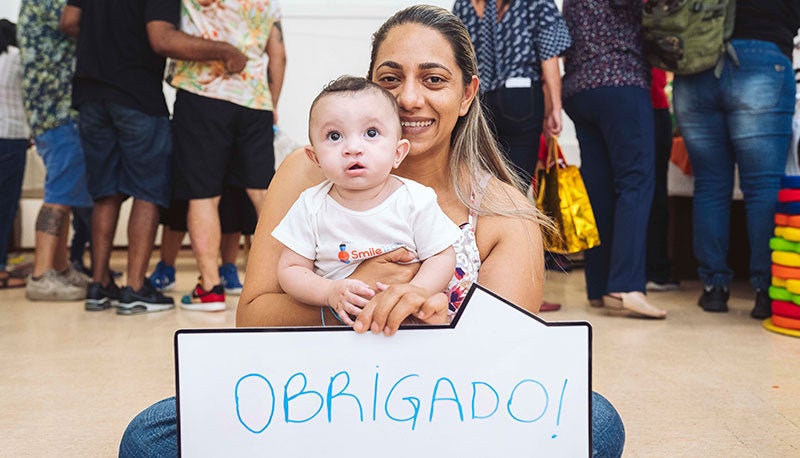Nurses Save Lives and Take Care of Us

“First of all, being a nurse is taking care of people, many times, putting the other before yourself and your family. Our instinct for patient-centered care appears prominently at a time of crisis like the one we are experiencing. We want to understand our patient as a whole, with his physical, emotional, social needs among many, seeking to be a link between all the other professionals who seek their solution,” says Liliane Rios, a nurse at our Smile Train partner center in Brasília (DF). "In the case of our patients with cleft lip and palate, we are reinventing ourselves and finding creative solutions to continue our care."
The World Health Organization has declared 2020 the Year of the Nurse and the Midwife. Across the globe, midwives and nurses play a vital role in healthcare — and delivering care to those with clefts is no exception.
For families, nurses are invaluable sources of knowledge, comfort, guidance, and medical expertise throughout their child’s care journey. When babies are born with clefts, nurses are commonly the first medical providers that can provide life-saving support on feeding strategies. They often guide families through the fears and anxieties that can accompany the birth of a baby with cleft in regions where stigma is pervasive.

For surgical teams, nurses are essential to provide the safest and highest quality of care to patients. They are commonly the first to interact with patients, recording their vital signs, weight, and allergies. They work with the families to minimize anxiety and answer questions, comforting patients, and their loved ones alike. In the operating room, nurses complete the operating theater checklist with the surgical team, ensuring that team members are prepared and in sync. After surgery, as they monitor recovering patients closely, nurses are best placed to see early changes in a patient's condition that could indicate complications, and to respond with treatment. Nurses also provide guidance to families on post-operative care and the subsequent treatments their loved one might need.
“Nursing is the art of caring, using the senses. We use active listening and we try to discover feelings beyond what we are seeing. It is very gratifying to see the smile of a patient in pain when you make a simple gesture of caring with affection”, says Alessandra. “We live in a terrifying moment with the pandemic, with medical treatments being postponed, and in those moments, play the role of a nurse is a privilege in providing care for the family, but in other situations, I need to be a mother and leave it to professionals, like those supported by Smile Train, to assume that role”. Emotionally touched, Alessandra says that she discovered Bernardo's cleft lip and palate at the time of delivery, and that in moments like this she needs to leave the nurse aside, in order to avoid the emotions’ influence the long journey of long-term treatment. "I am proud of my son and my profession, which allows me to take care of him with special attention".

Despite the importance of their role in delivering high-quality healthcare, nurses are too often under-recognized and under-compensated. In large part, this is tied to gender inequity — while nursing is of course not an exclusively female profession, the vast majority of nurses are women, and though women comprise more than 75% of the global health and social workforce, they hold less than 25% of the leadership positions in health systems. In a 2019 report on nurse leadership by IntraHealth International, NursingNow, and Johnson & Johnson, researchers found that nurses encounter many social, cultural, structural, political, and personal barriers that bar their road to leadership positions. This dire shortage of trained nurses worldwide, as well as the chronic under-recognition of the nurses that work on the frontlines of care, is a threat to health systems around the world.

Recognizing that nurses are essential to cleft care, surgical care, and achieving universal health coverage by 2030, Smile Train has developed the Safe Nursing Care Saves Lives Workshop, a training course that empowers nurses with essential skills to administer high-quality nursing care for children undergoing cleft surgery. The skills the nurses learn in these workshops benefit all patients in need of surgical care, building health worker capacity around the globe.
Nurses are leaders. Alongside the WHO and the many global health organizations championing nursing care, Smile Train will continue to empower the nurses who change the lives of patients with clefts every day — and we will work to raise their voices, sharing their stories, their challenges, and their triumphs.
Discover the emotional story of Celeste, Vicente's mother and a nurse in Argentina in this video.
